Discover winter in the Poconos, especially artistic, unusual
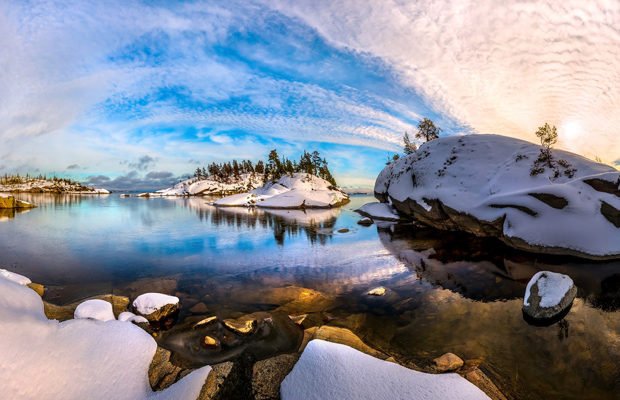
Winter Ladoga is rich in diversity of landscapes: it is the austere types of the stone shores, covered with ice and snow, grey skies and lonely pines and huge rock formations with sharp ridges and littered with fallen trees, on top of which rise the majestic pines, and the mighty waves, which, if cut down with an ax of ice, sandy shores, and bottomless and the sky, through the tight clouds which burst rays of a cold sun, and granite bowl lakes.
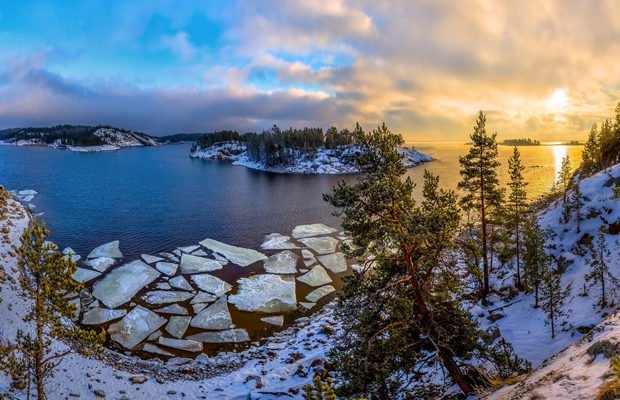
Lake Ladoga — one of the largest freshwater lakes of Europe. It is located in the North-Western part of Russia.
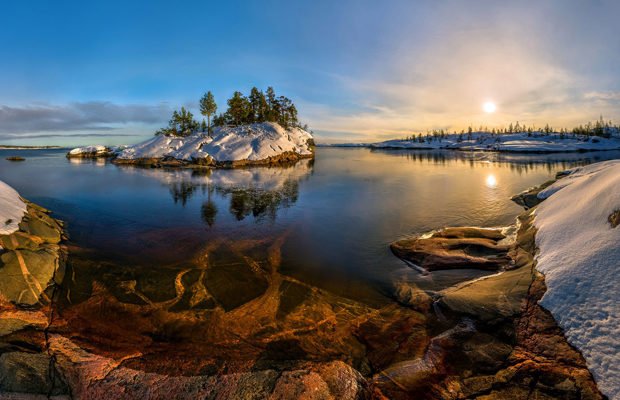
In Nesterovoj old Russian Chronicles of the XII century is referred to as "the great lake Nevo" (evidently connected with the name of the river Neva). In ancient Scandinavian sagas, and treaties with the Hanseatic towns of the lake called the Al.
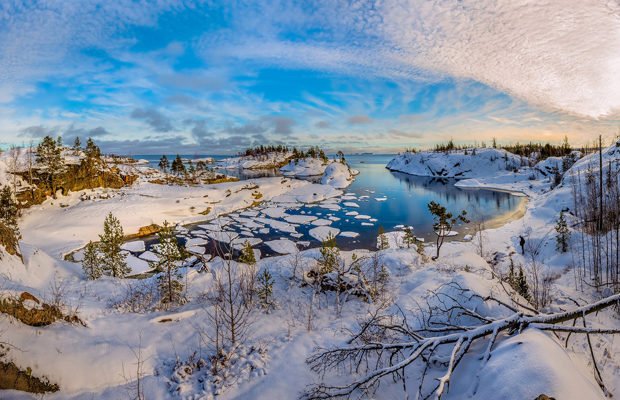
Since the beginning of the XIII century is part of everyday life the name of lake Ladoga, formed from the name of the city of Ladoga, in turn, called on the same tributary in the lower reaches of the Volkhov river.
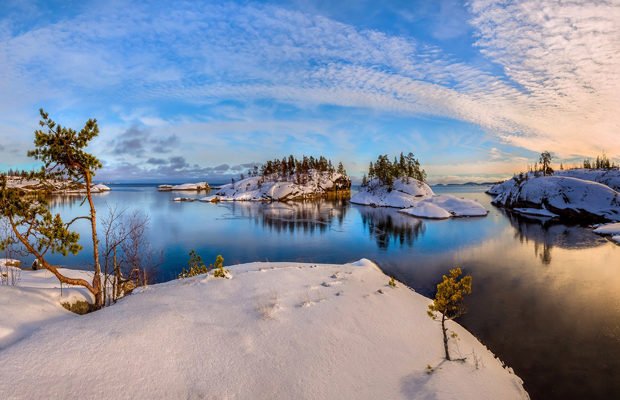
The name Ladoga is river, lake and city. While until recently it was not clear which of the names is primary.
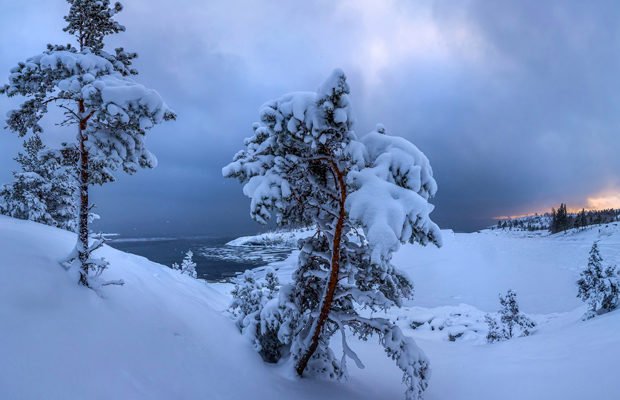
In the Paleozoic, 300-400 million years ago, the whole territory of the modern basin of lake Ladoga was covered by the sea.
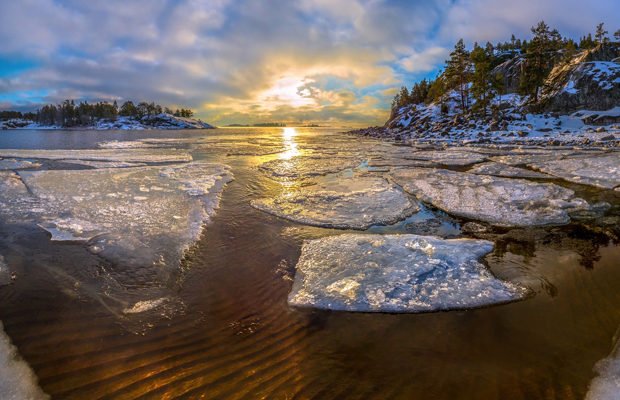
Sediments of that time — Sandstone, sand, clay, limestone — coated with a large thickness (over 200 m) crystalline basement consisting of granites, gneisses, and diabase.
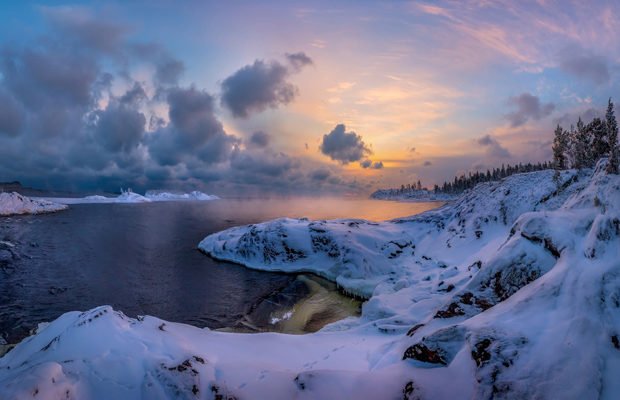
The modern relief was formed as a result of the ice sheet (the last, Valdai glaciation ended about 12,000 years ago).
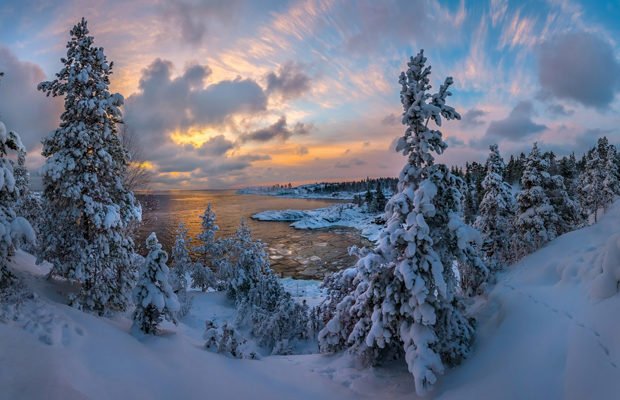
The climate over Ladoga lake is temperate, transitional from temperate continental to temperate Maritime.
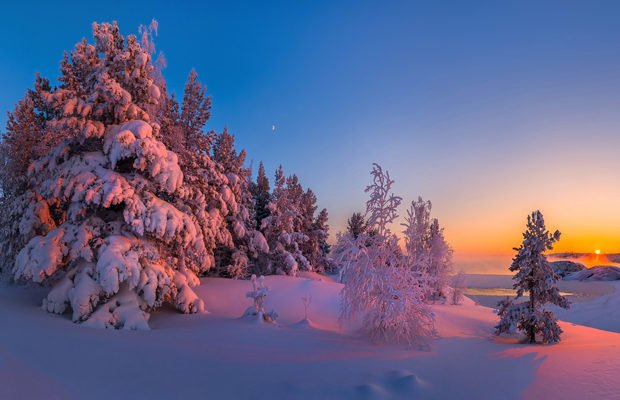
Above the lake there are the so-called "white nights", the upcoming may 25-26, when the sun sinks over the horizon not more than 9°, and the twilight practically coincide with the morning.
10
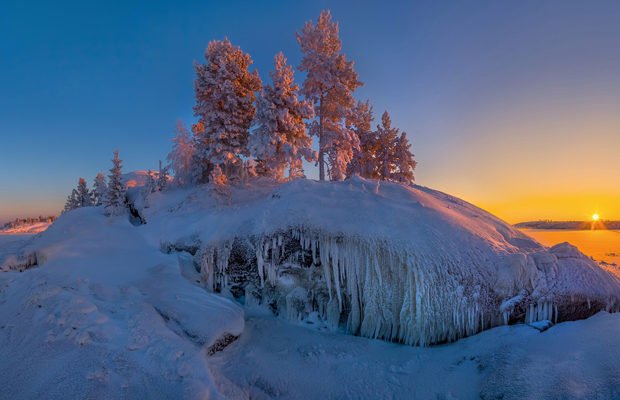
The lake area without the Islands is from 17.6 thousand km2 (including the Islands 18.1 thousand km2); the length from North to South is 219 km, the maximum width is 138 km.
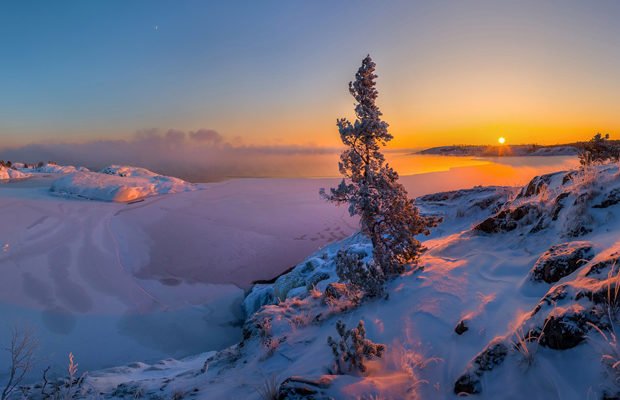
In the lake Ladoga fall 35 rivers. The largest river that flows into it is the Svir river, which brings water into it from lake Onega.
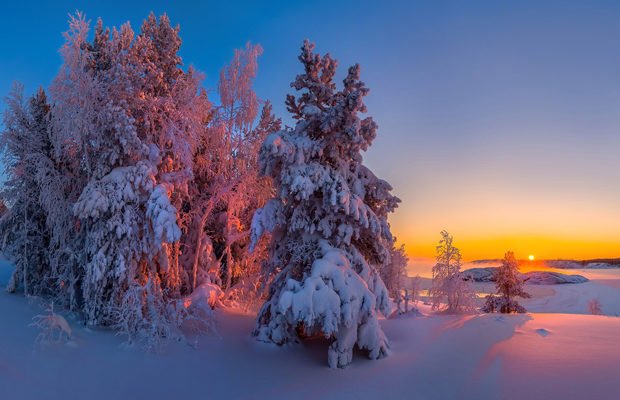
On Ladoga lake around 660 Islands (area over 1 ha) with a total area of 435 km2. About 500 of them are concentrated in the Northern part of the lake, in the so-called skerry area, and as part of Valaam, West of the archipelagoes and groups of Islands Mantsinsaari.
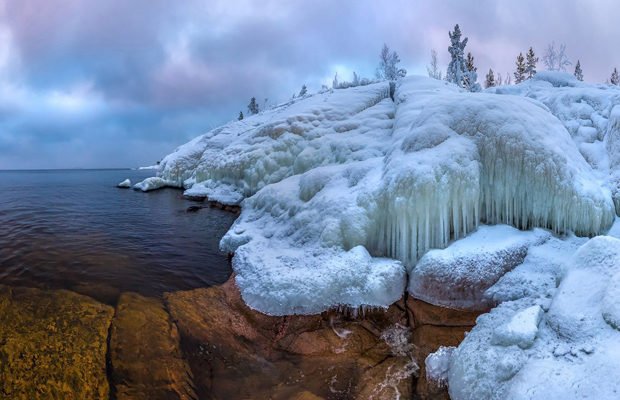
Island lake is rocky, with high, up to 60-70 m, sometimes steep banks covered with forest, sometimes almost glabrous or with sparse vegetation.
